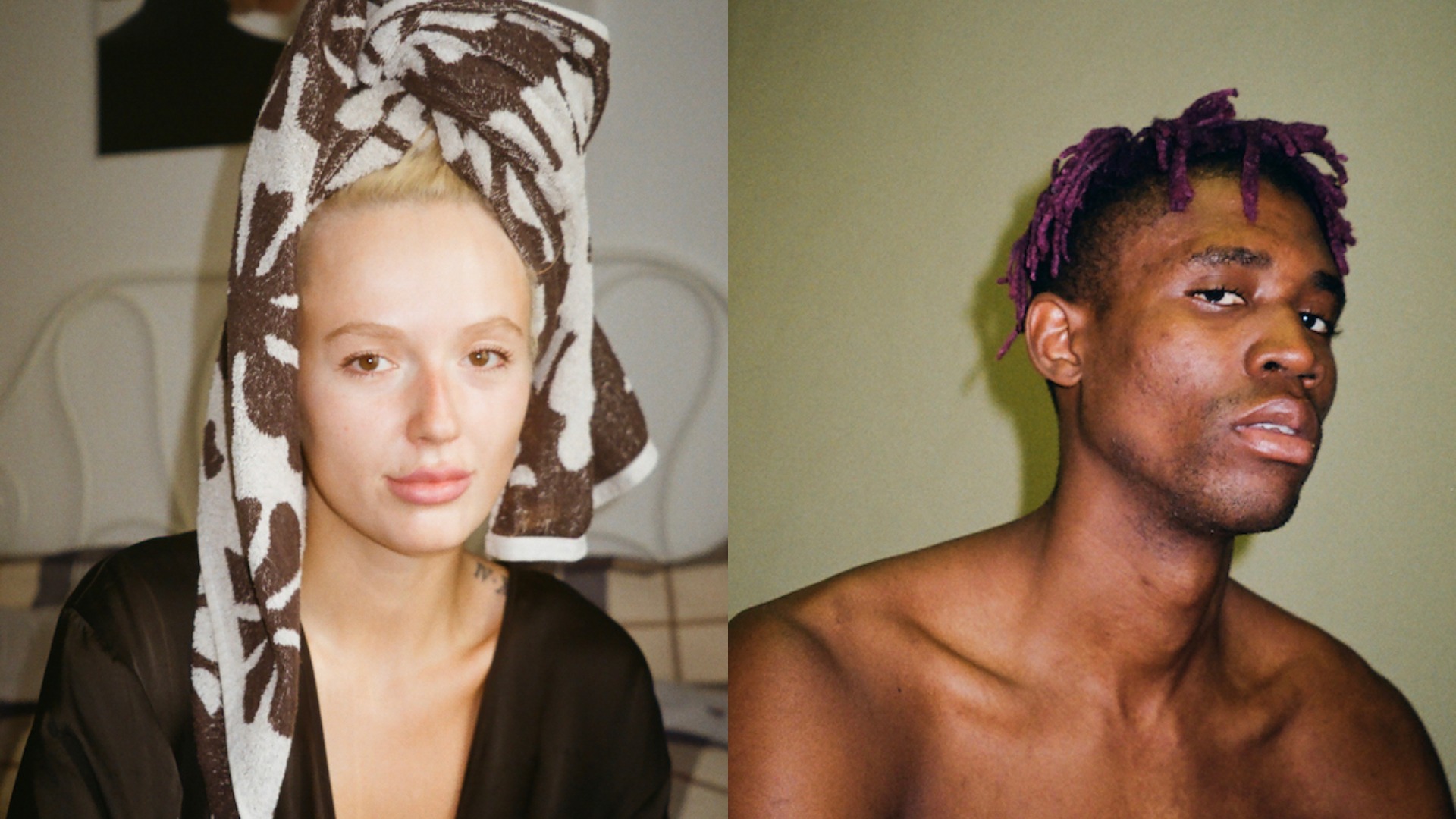Online Lipnem is a photographer from St. Petersburg, Russia, who when the pandemic hit decided to turn his lens towards the creative community in his city. “The pandemic affected many things, people stopped travelling and began to spend more time at home,” he says, in line with most metropolitan areas in the world. “ When quarantine weakened, it became possible to attend outdoor events or go to a masked exhibition. But no matter where you are, no matter how far you go, you always come home to your bed, the place where you spend half your life in a dream.” Thus, the idea to photograph his friends in bed was born.
The bed is perhaps the new centre of many of our homes — either visible in the back of our Zoom calls if we’re working from our bedrooms, or seen because we’re actually propped up in it while working (unless you have the camera off). The photographer also wanted to show the diversity in his city, choosing ten people who show the breadth of experience in St. Petersburg. “Each hero is unique in their own way,” he says. Below, read their thoughts on the new normal.
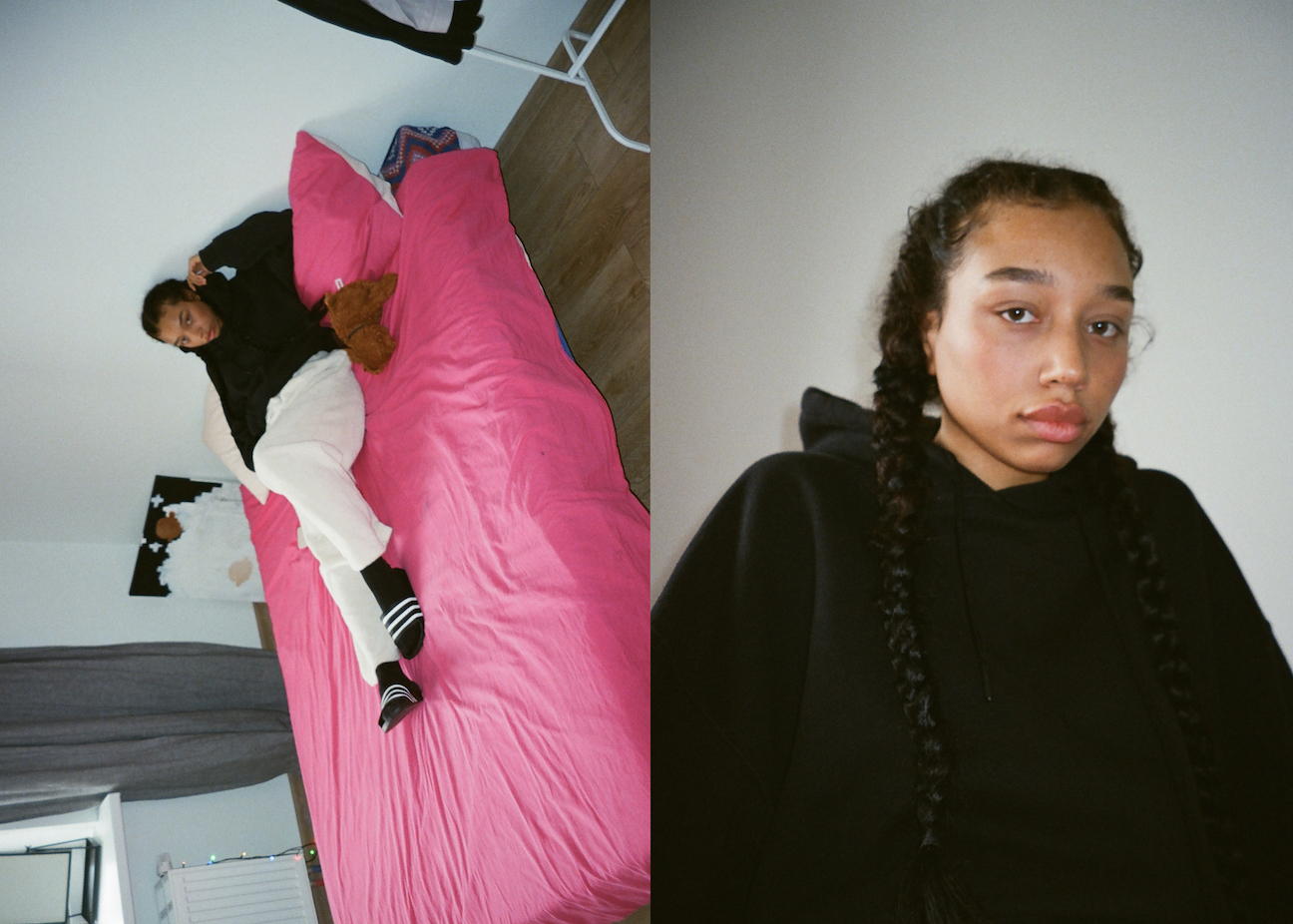
Can you tell us about your work?
Currently, I work in the service industry with a stupid schedule from 7A.M. to 11A.M. I am a waitress. This is not a dream job, but this job helps me to save money for my dream.
How would you describe the creative scene in Russia?
What I see is that in Russia there is still room for new faces, and the competition is small. But I could be wrong.
How has the nature of what you do changed in 2020?
In 2019 I was raving non stop and communicated a lot with people. In the first half of 2020, I sat at home without going out and lost all social contact. In the second half of 2020, I only worked and tried to restore a small part of the social life that I had.
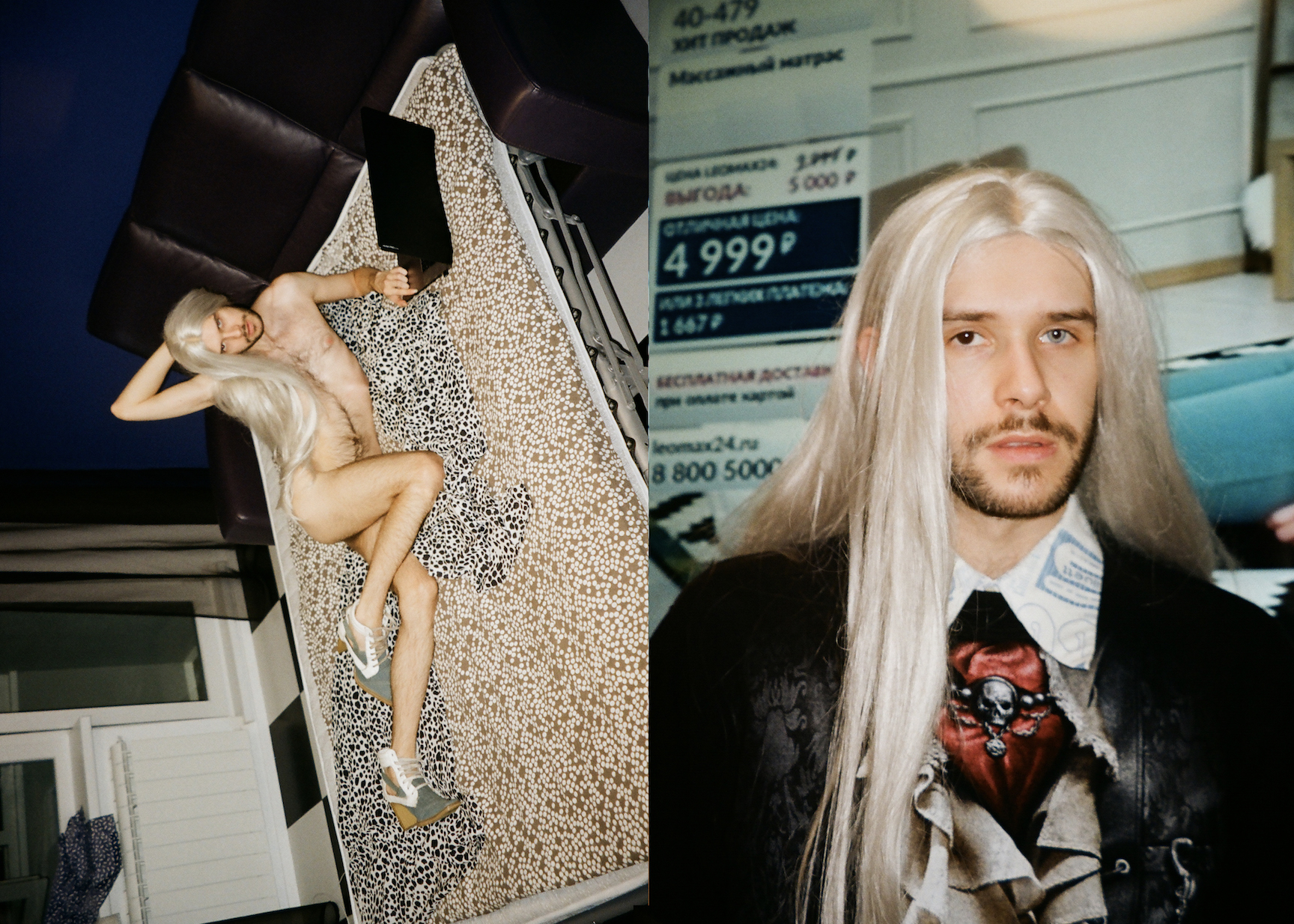
Can you tell us about your work and what you like about it?
My name is Sasha and I am from Russia. Besides exploring Russian culture, the main themes that inspire me are: our struggle with language because words control us and reduce our worldview; queer theory, that means ever-changing flexible non-linguistic self-definition; and criticism of the concept of the one and only monumental truth.
These three ideas are similar for me because it’s all about liberation from an automatic perception of what is happening, and aspiring to independent, affective perception and action based on the here and now. We are more than systems and words, and I want people to look at the material and physical world without the preconceptions that language imposes.
Affect for me is the way to see clearly and question personal positions and truths. Art becomes a mirror where the viewer receives a therapeutic effect — he projects himself onto works of art and thus can learn more about himself through emotions or experiences received at the moment of watching. In the reality around me, I see many elements of the structured system, the reification of cultural norms, in which sensations and life so often disappear, and that is why it is so important for me to show and expose this through my art. My activity is an anarchic, sincere, and lively response to neat social constructs that I want to undermine and initiate rethinking. In my art, I show the distortion, exaggeration, and theatricality of a reality that’s taken as the norm.
How would you describe the creative scene in Russia?
Most of the contemporary young artists are facing aggression from their audience, because most people in Russia are not ready for changes. Russia is very large and, unfortunately, a big part of the population live in poorly developed areas, where conservative propaganda is still influencing and controlling people’s minds. Artists who speak out on topics contrary to the government’s opinion are punished with arrests and pursued by the police.
What change would you like to see?
I was born in St. Petersburg, Russia, and am still living here. I’m a queer person and I have so much fear to express myself in the full power I have inside of me [while] based in my hometown. I feel a lot of borders that inhibit me from experimenting more with my artistic identity. Often I feel depressed. At some point, I became afraid of going out of the house. Yes, of course, I go out sometimes, to be on photo shoots, spend time with my friends or buy food and other stuff for living and art creation, but still, it’s very stressful for me, to feel unprotected in the face of total strangers that I might meet on my way.
My biggest fear is to be assaulted — emotionally or physically. I cannot stand up to aggression. The context of predominant homophobia in Russia is daunting [to] me. Also I feel really unprotected when faced with police. In our country, the police quite easily can disobey the law, plant drugs in your bag, for example. It’s scary and enhances the feeling of terror and vulnerability. I just want to be who I want to be and feel protected. I think this is the basis for the opportunity to fulfill personal ideas.
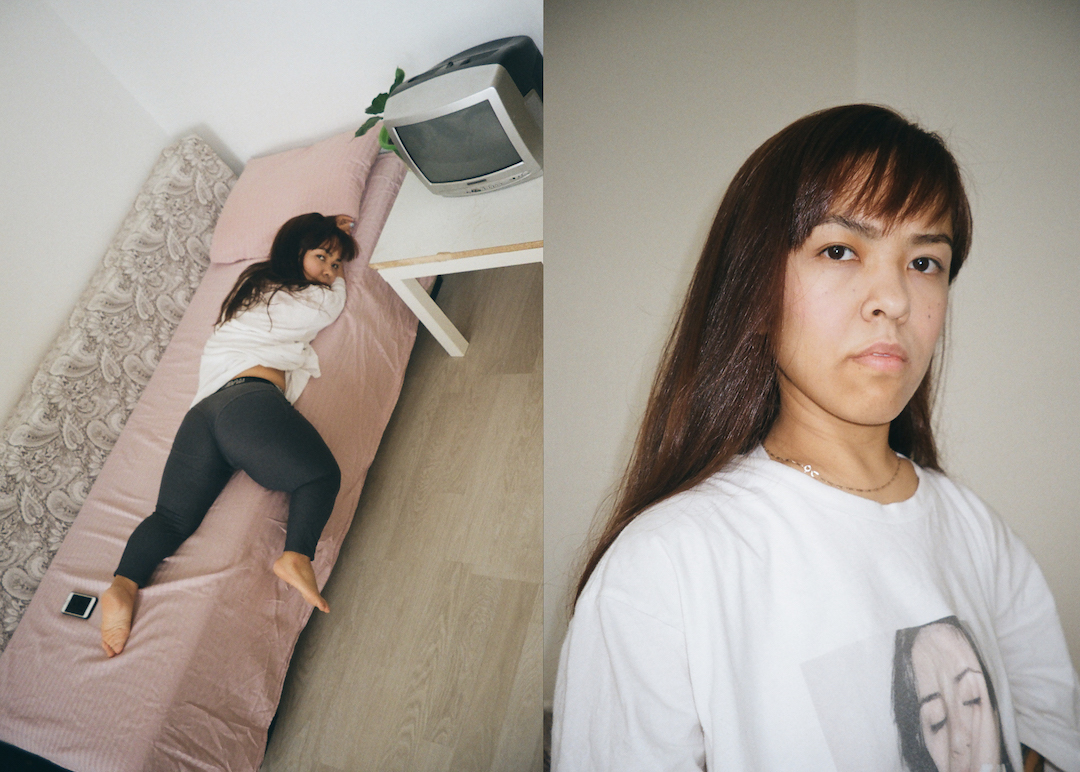
Can you tell us about your work and what you like about it?
I like dynamic design, a relatively new direction for our country. There are not so many specialists now, and the profession is in demand.
What change would you like to see?
More opportunities to implement new projects.
How has the nature of what you do changed in 2020?
The rhythm of life has accelerated, everything has become fast food and short-lived.
What do you like most about being in bed?
Vulnerability. The only place where you can be anything.
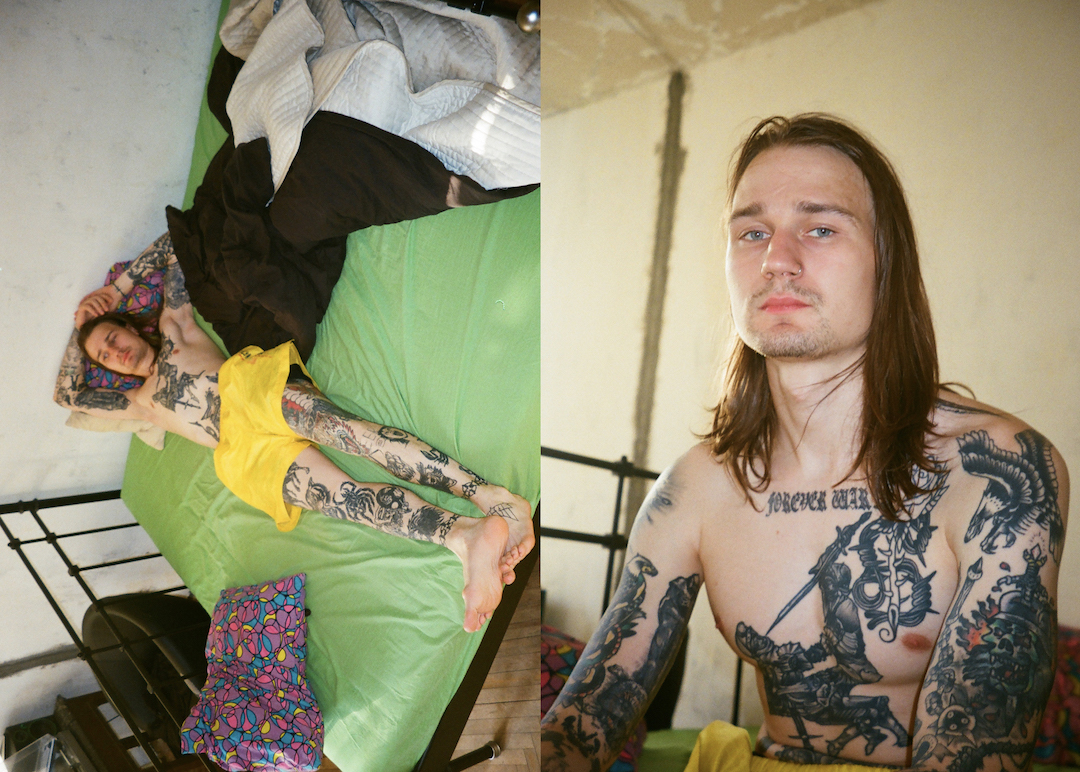
Can you tell us about your work and what you like about it?
I have been working for a long time. I like my job for its stability. It allows me to travel the world and skate.
How would you describe the creative scene in Russia?
I do not know. Really. Everything seems to be so good.
What change would you like to see?
I just want the pandemic to end and for our lives to become the same as before.
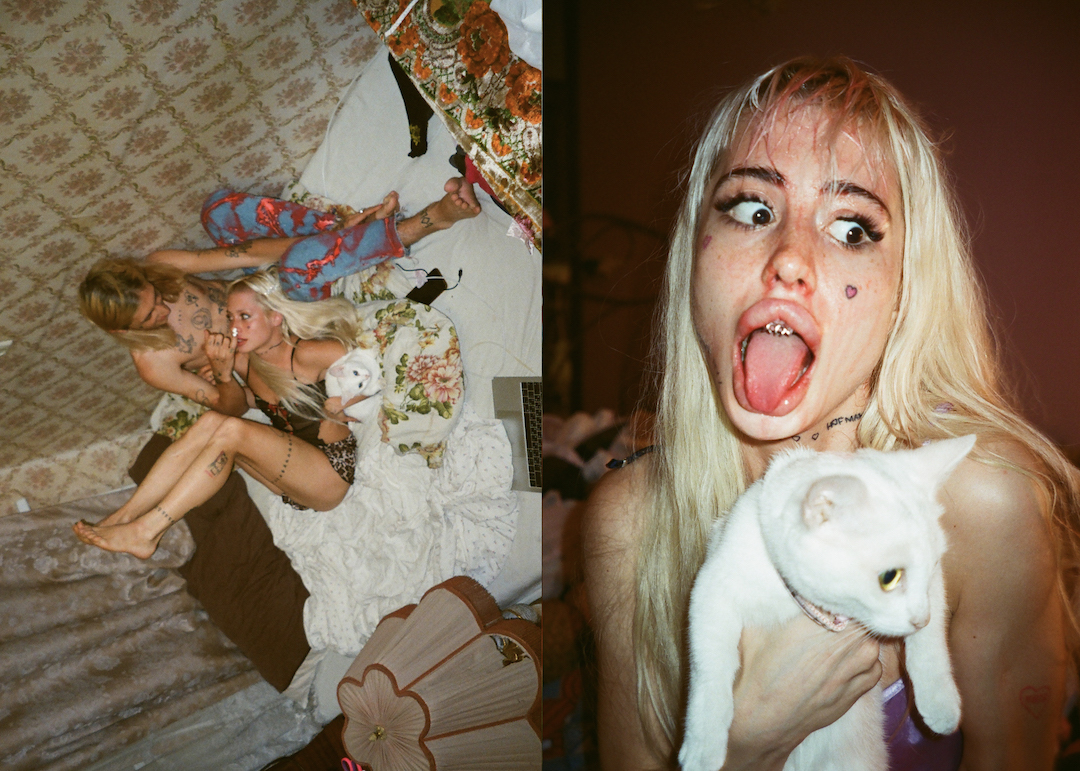
Can you tell us about your work and what you like about it?
I have many activities. At the moment, music is all I live. I like to express myself through songs, I have loved to sing since childhood. My appearance was often condemned because I attracted attention and dressed unlike everyone else. Now I release rap albums, record collaborations with other artists, such as Nadya Tolokonnikova from Pussy Riot and Drippin So Pretty.
How would you describe the creative scene in Russia?
Very talented people live here, but unfortunately, most of them remain local. Or they just leave the country, for many reasons. The independent scene is very diverse, every year there are more and more interesting people who try to make themselves known.
How has the nature of what you do changed in 2020?
This year I was going to have a big tour, like many artists, but everything had to be cancelled. I had to give up concerts and concentrate more on creating a new album. I think quarantine was good for me, I paid more attention to creating new songs.
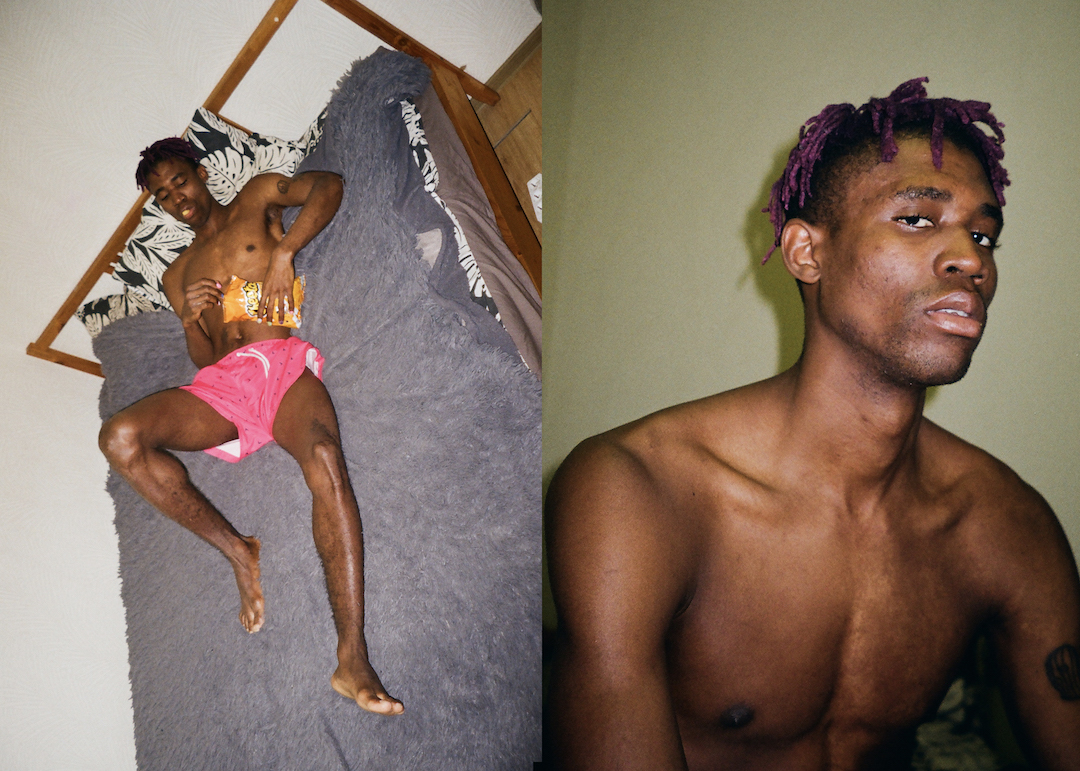
How would you describe the creative scene in Russia?
I think Russia is a country full of creative and talented people in various domains. I’ve been living in Russia for almost two years and in my opinion Saint Petersburg is the most creative city. Basically every week I meet at least a new artist (modeling, photography, video, poetry, music etc… ). I worked for a lot of Russian brands but I kept two in my heart. Pirosmani studio and 139dec, they just have unique designs reminding me of Rick Owens. I walked for Pirosmani at the Mercedes Benz Fashion Week In Autumn 2019. This is still one the biggest experiences of my career.
What change would you like to see?
Honestly, I want to see more serious modeling agencies and more serious customers. The main problem is about mentalities — some clients don’t take the modeling profession as seriously as they need to. They are ready to propose you some ridiculous amount for [photography] sessions. The other thing is about Black models in Russia — it is pretty hard to be a Black model here. Especially if you have higher expectations, like to attend fashion weeks in Europe or to work with upper echelon brands. The fact is agencies and bookers are not ready to spend their time on Black models.
I will tell you a little story. I was working for an agency based in St. Petersburg and at the beginning it was really hard for me, almost no jobs. And after three months of hard time I was really upset and I called my booker and was like, “Hey, yo I need more jobs, I don’t want to teach you how to do your job but I think I deserve more.” And the guy was like “Sorry dude but it’s not my fault, the fact is that for the most part customers don’t like Black models.” Funny right? Honestly I need more, and [I’m] already planning to leave to another country. Maybe Paris or LA.
What do you like most about being in bed?
Bed is the place where the magic operates according to me. My bed is my sanctuary due the fact that when I’m coming home tired from [photo] sessions or showcases I just lay down knowing my bed will refresh my mind. Me and my girlfriend have some bed rituals that I won’t talk about here. It’s the place where we find peace away from the world outside
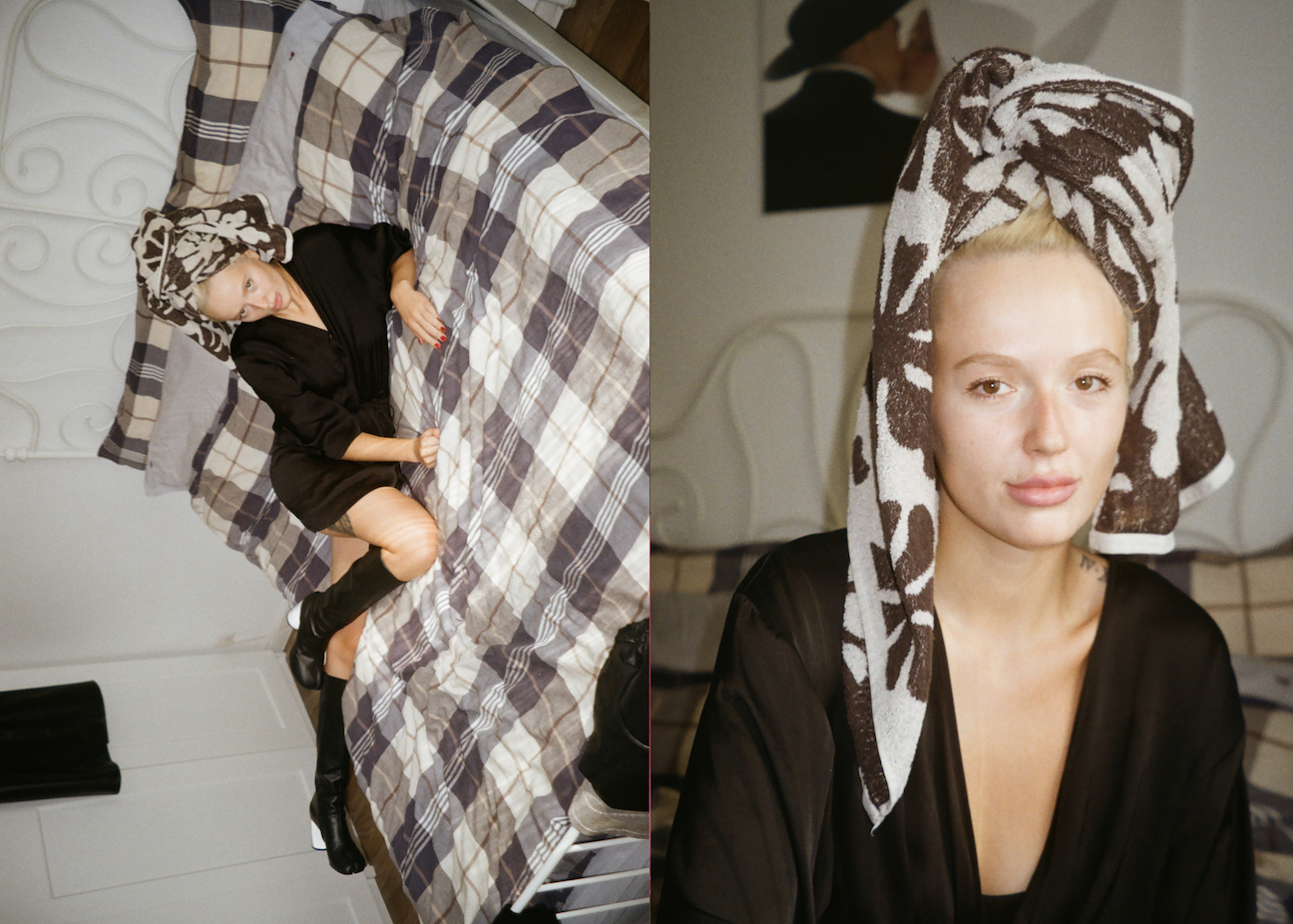
Can you tell us about your work and what you like about it?
My current job is what I have been dreaming about since my childhood, but in my childhood I couldn’t even imagine that I would be able to earn twice or even three times more for this [than what I would earn] working as an engineer. I like the fact that you see the result immediately and it is very inspiring.
What change would you like to see?
I really wanted people to start appreciating work, the work of a photographer, the work of a makeup artist, the work of a stylist, of course, especially with regard to Russian celebrities. Probably, things are better in Moscow, so I would like it to be the same in St. Petersburg.
What do you like most about being in bed?
Most of all in bed I like to eat and watch series.
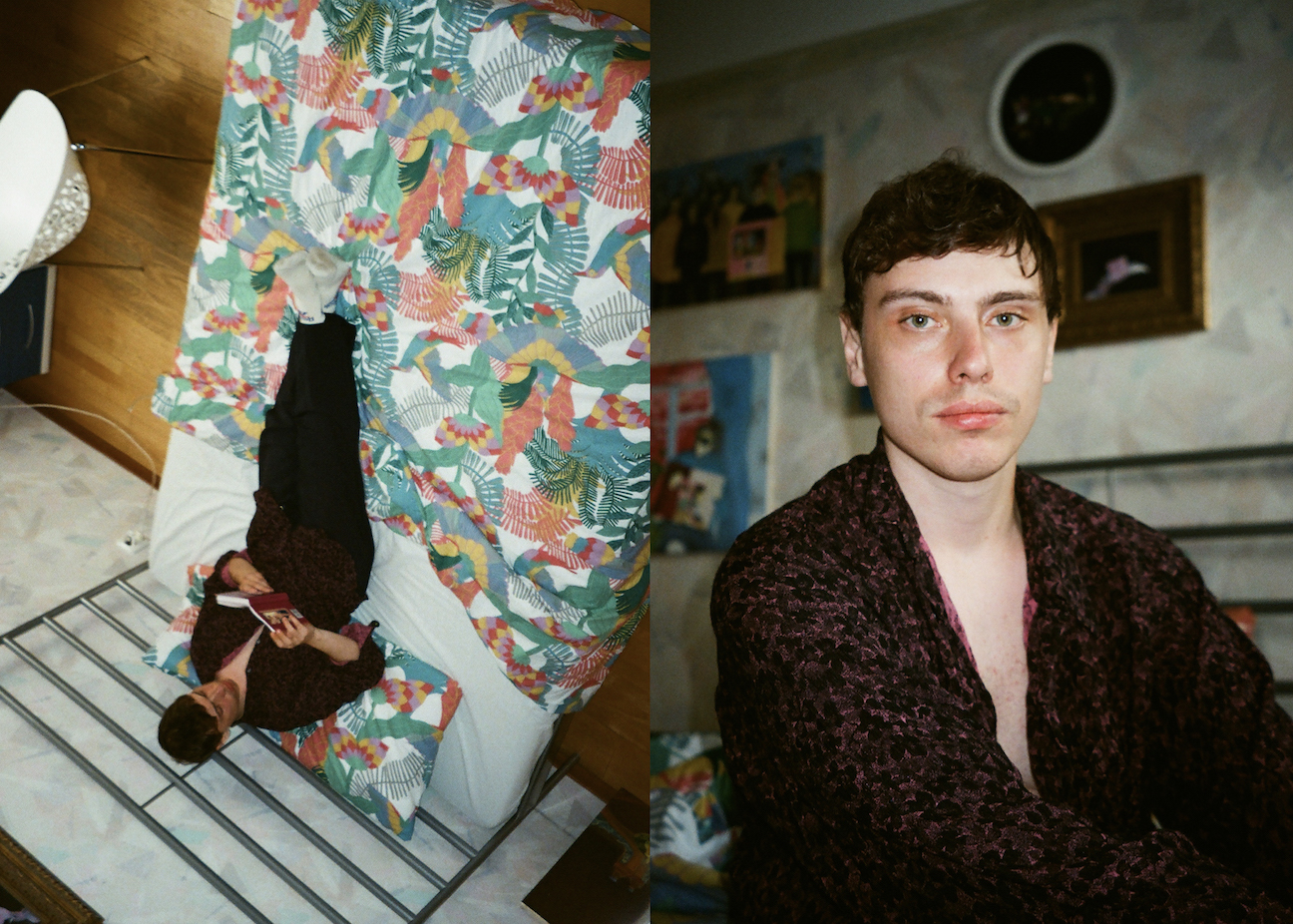
Can you tell us about your work and what you like about it?
I’m into doing a lot of things all the time. I’m a painter and the main idea is to create something big so I can feel comfortable with my life when I die of old age.
What change would you like to see?
I want people to be more selective.
How has the nature of what you do changed in 2020?
Nothing really changed. Art lives its own life, especially over the internet. But the way artists express themselves in 2020 is totally different because of… well… the context…
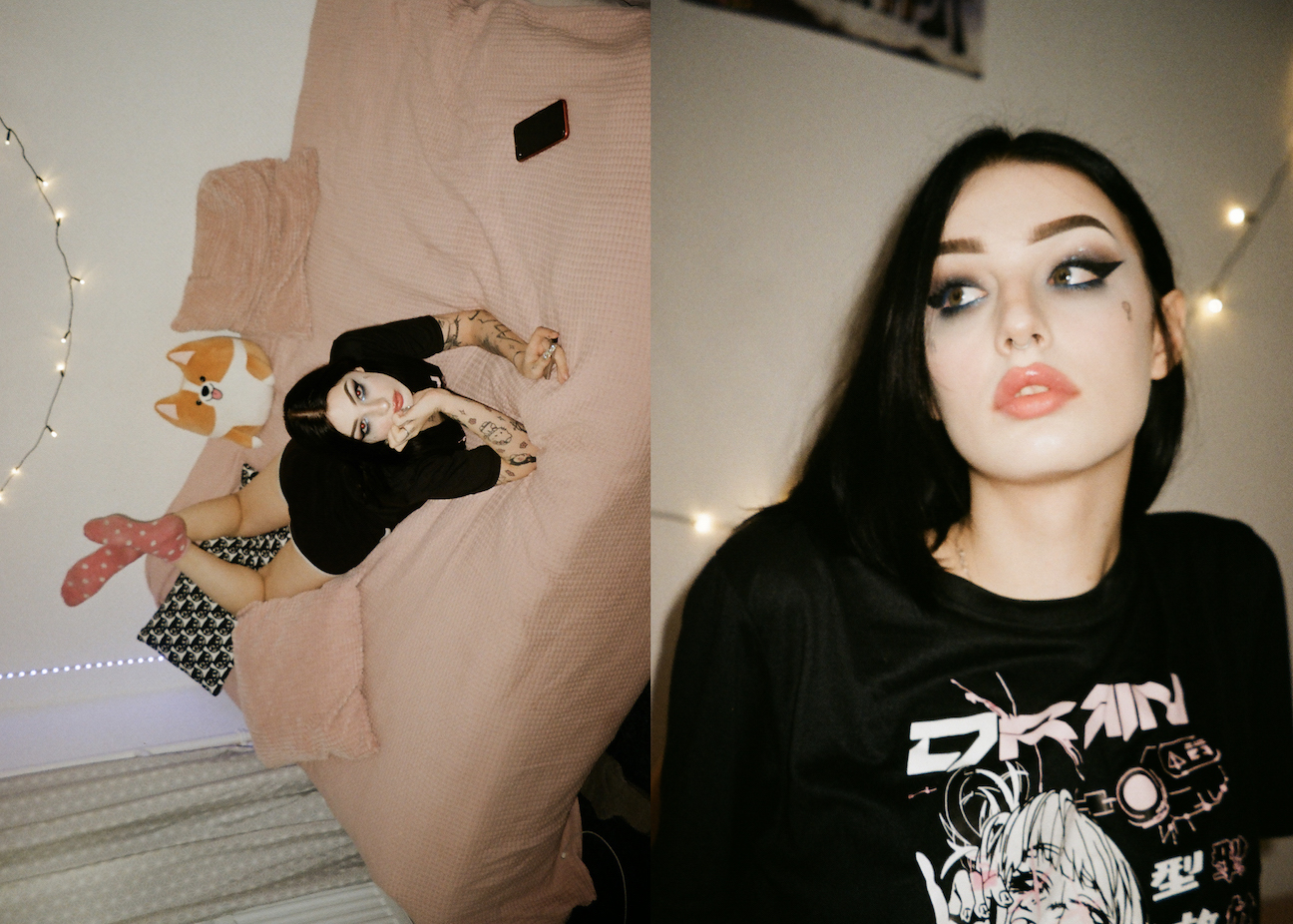
Can you tell us about your work and what you like about it?
I am a webcam model. Most of all I love my work because it makes me more confident in myself and my body. It is very important for me, as a trans person, to like myself.
How would you describe the creative scene in Russia?
For me, over the last five years the creative scene in Russia has undergone great changes. There are fewer pretensions, more underground performers. People express their personal position without fear that some part of their audience may disagree with them. Frankly speaking, I am sincerely glad about it.
How has the nature of what you do changed in 2020?
The year 2020 gave me much time to rethink my life. Due to the large amount of free time during quarantine, I began to actively develop in terms of blogging and achieved good success in this area. My first YouTube video, where I talk about my transition, collected over a million views. I also started to develop [my work as a] makeup artist.
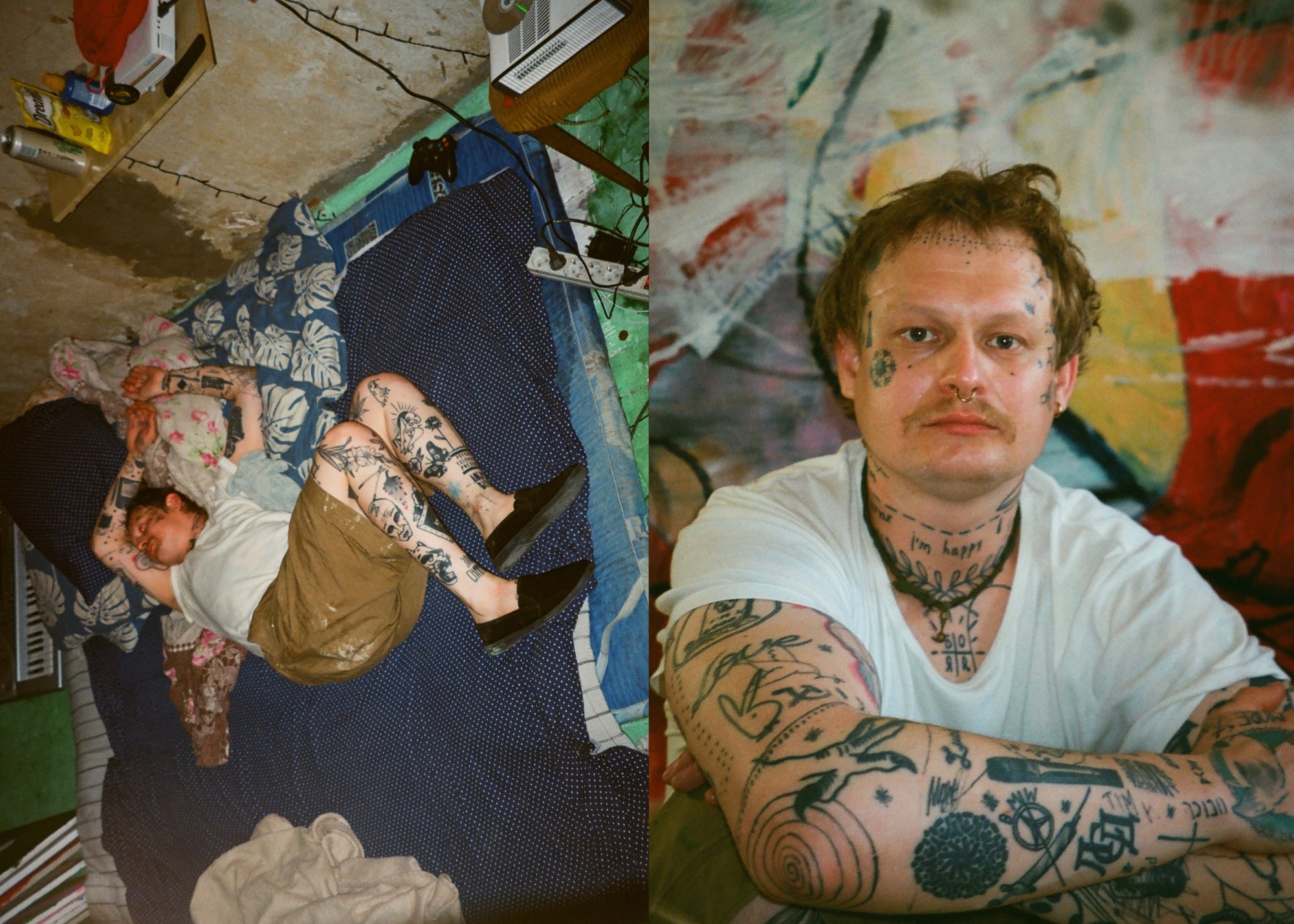
Can you tell us about your work and what you like about it?
Hello, my profession is to create beauty. I like that I can touch the eternal.
How would you describe the creative scene in Russia?
Russian creativity is lame. It is still being driven from behind with a stick. I would like to give way to young artists.
What do you like most about being in bed?
That my two cats are sleeping with me.
